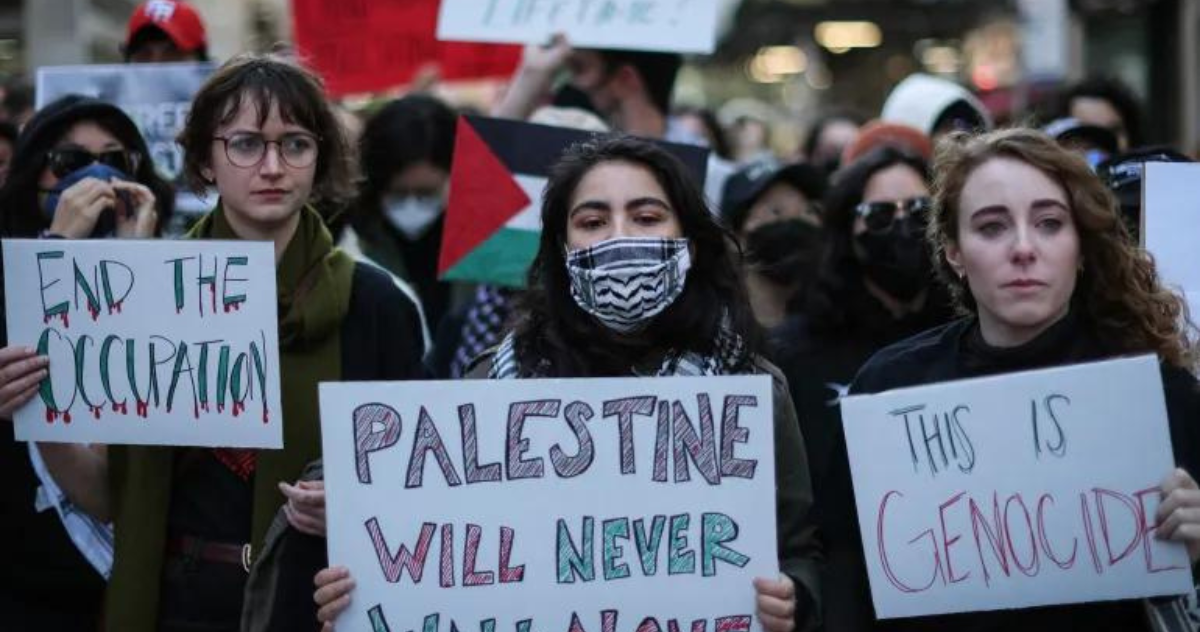UK ( Parliament Politics Magazine ) Britain’s top cop is catching heat from the interior minister, who claims that the Metropolitan Police is going easy on pro-Palestinian protesters amid tensions from the Israel-Hamas conflict. Home Secretary Suella Braverman criticized the police for overlooking legal breaches by “pro-Palestinian mobs” and labeled those advocating for a Gaza cease-fire as “hate marchers.” This unusual public rebuke has sparked political discord, with calls for Braverman’s dismissal. Prime Minister Rishi Sunak, though, has expressed confidence in her, despite her controversial stance within the Conservative Party.
Remembrance Weekend Dispute: Sunak Supports Right to Protest Amidst Criticism
For over a month now, pro-Palestinian demonstrations have unfolded in London and various British cities each weekend, drawing government criticism for scheduling a march on Armistice Day. This day, commemorating the end of World War I, holds special significance in Britain, as people pause to honor war victims.
The planned march, slated for Saturday, precedes the main Remembrance Sunday events, where dignitaries like King Charles III, senior politicians, diplomats, military leaders, and veterans participate in a wreath-laying ceremony at the Cenotaph war memorial in central London. Notably, the proposed route steers clear of the monument, situated just steps away from Parliament.
Sunak has voiced disapproval of the scheduled protests during Remembrance weekend, deeming them “provocative and disrespectful.” However, following discussions with police chief Mark Rowley on Wednesday, Sunak clarified that the government supports the “right to peacefully protest.” He emphasized the importance of upholding this freedom, acknowledging that its true test lies in whether the commitment endures despite the discomfort and frustration that may arise from those with differing views.
It seemed like the dispute was simmering down, but Braverman took it up a notch with a strongly worded article in the Times of London. She accused the police of displaying preferential treatment towards pro-Palestinian demonstrators and Black Lives Matter supporters compared to right-wing protesters or soccer hooligans.
Political Fallout: Opposition Criticizes Sunak’s Handling of Braverman’s Comments
Braverman asserted that there’s a perception of senior police officers playing favorites when it comes to protesters. She went on to describe demonstrations advocating for a cease-fire in Gaza as an “assertion of primacy by certain groups,” particularly Islamic extremists, drawing parallels to the kind of scenes more commonly associated with Northern Ireland. This reference seemed to allude to demonstrations by Irish republican groups.
Braverman’s comparison struck a sensitive chord, especially in Northern Ireland, where over 3,600 lives were lost during 30 years of violence involving Irish republicans, British loyalists, and U.K. security forces. Many politicians in the region criticized her remarks as insensitive and inaccurate.
Colum Eastwood, leader of the Irish Nationalist Social Democratic and Labour Party, expressed his dismay, highlighting what he saw as Braverman’s “ignorance of the conditions faced by the civilian population in Gaza, ignorance of the role of the Met police, [and] ignorance of the complex history and traditions of marching and protest in Northern Ireland.”
Read More: UK Parliament Requests Testimony on NDA Impact on Women in the Music Industry
Political Tensions Escalate
Braverman’s comments seem to have rubbed almost everyone the wrong way, earning her criticism for offending various groups in a divided society. Opposition politicians argue that Sunak’s reluctance to dismiss her reflects weakness on the prime minister’s part.
Labour Party leader Keir Starmer contends that Braverman’s behavior isn’t fitting for a home secretary, emphasizing the government’s responsibility to ease tensions and support the police in their challenging decisions.
The Saturday demonstrations, organized by left-wing groups and Muslim organizations, have drawn hundreds of thousands of participants since the conflict sparked by Hamas’ incursion into Israel on Oct. 7. Notably, there have also been sizable rallies supporting Israel and calling for the release of hostages seized by Hamas in the October 7 attack.
The police have reported nearly 200 arrests in London linked to the conflict, with 98 for suspected antisemitic offenses and 21 for alleged anti-Muslim offenses. In the UK, protests can only be banned if there’s a risk of serious disorder, and so far, authorities have determined that threshold hasn’t been crossed. However, there’s concern about the potential presence of “breakaway groups intent on fueling disorder,” including far-right activists.
The home secretary, responsible for law and order and immigration policy, is also tasked with overseeing the government’s stalled plan to send asylum-seekers arriving in Britain by boat on a one-way trip to Rwanda.


